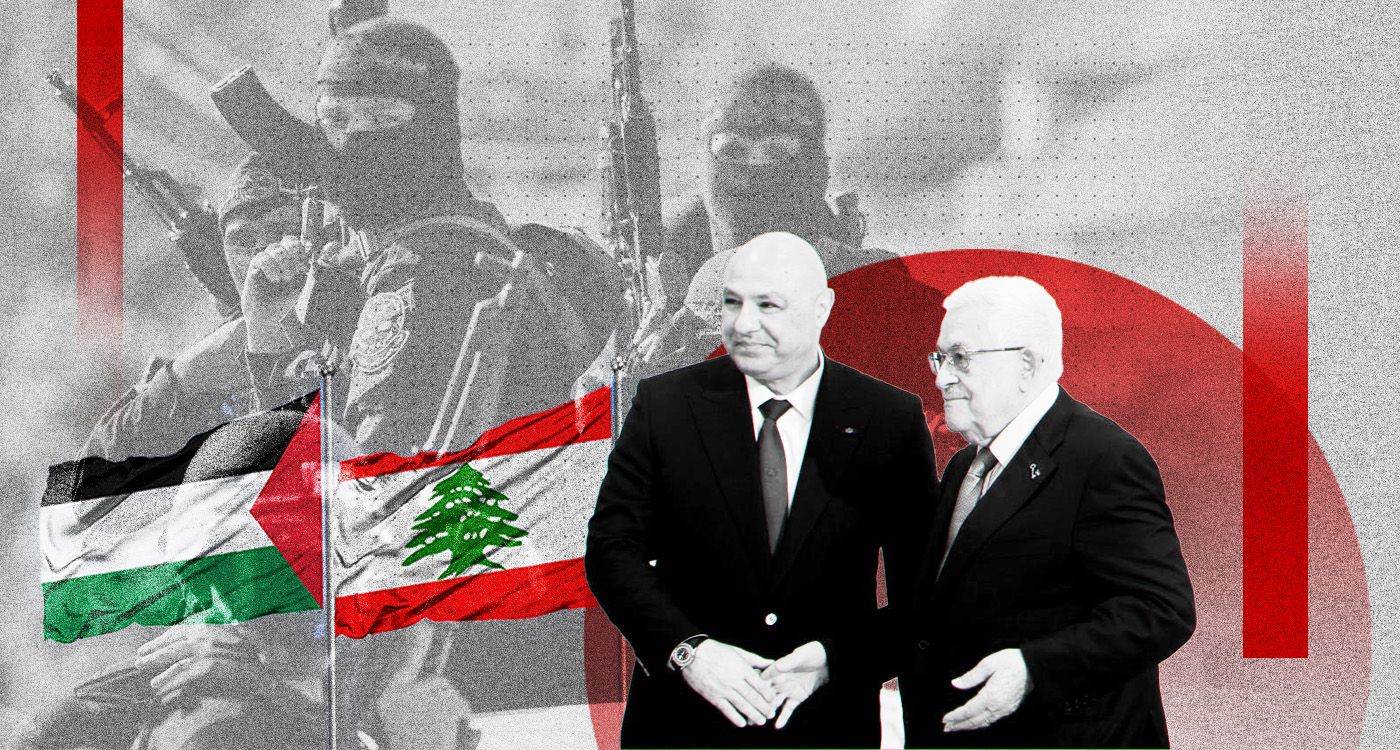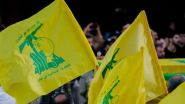
President Mahmoud Abbas’ recent visit to Lebanon is unlike any before it, neither in symbolism nor substance. Local and regional dynamics have been upended. What held true before September 2024 and even during the turbulent months that followed in Lebanon and Syria, no longer applies in 2025.
Abbas in Beirut: A Break from the Past
This visit marks a distinct turning point. It follows the failure of the Iran-led “obstructionist axis” to defeat Israel. The much-publicized promise of striking “beyond Haifa” never came to pass. Instead, Gaza and southern Lebanon lie in ruins. A wave of targeted assassinations has devastated Palestinian and Lebanese leadership – including the killing of Hezbollah Secretary-General Hassan Nasrallah, as well as lower-ranking commanders. Key figures such as Saleh al-Arouri, Ismail Haniyeh and Yahya Sinwar were also eliminated – following the earlier assassination of Qassem Suleimani, leader of the axis itself.
More importantly, Abbas’ visit reflects a profound geopolitical shift: the collapse of Iran’s regional ambitions and the fall of Bashar al-Assad’s regime. These developments have opened the door for Lebanon to reclaim its sovereignty, free from Syrian oversight and Iranian dominance. Today, authority is firmly vested in Baabda and exercised through Lebanon’s legitimate state institutions.
Lebanon Chooses Diplomacy Over Conflict with Israel
Lebanon has embraced a diplomatic path in its conflict with Israel. The “moumanaa axis” once convinced regional and international powers that “Israel is as fragile as a spider’s web” and that any war would devastate Israel. Israeli Prime Minister Benjamin Netanyahu forcefully responded, “Israel has pillars of steel and a strong will.”
After the devastating impact on southern Lebanon due to Hezbollah’s support for Gaza, the party – through Parliament Speaker Nabih Berri – accepted the US-French proposal for a permanent ceasefire, disarmament of Hezbollah and dismantling of its military infrastructure.
The Lebanese government has committed to this agreement and to fully implementing UN Security Council Resolution 1701. The failure of the “resistance” to fulfill its promises, alongside its silence amid ongoing Israeli violations, has paved the way for this shift.
Abbas’ Visit Aligns with US-Led Push for Ceasefire in Gaza
Abbas’ visit coincides with a renewed US effort to secure a ceasefire in Gaza. Several Arab States have entered the diplomatic process, signaling a regional move from failed military strategies toward political solutions centered on stability and security. The ultimate vision is a new Middle East built on comprehensive and just peace, culminating in normalization with Israel.
An Arab diplomat told a Lebanese minister: Lebanon and Syria must commit to stability, secure borders and prepare for comprehensive peace.
During his Cairo visit, President Joseph Aoun clearly declared, “Our entire region faces the challenge of peace, and we stand ready. Hezbollah must accept the authority of the state and its right to participate politically—but without weapons.”
Ahead of her visit, US Deputy Envoy to the Middle East Morgan Ortagus sent a clear message urging Lebanon to seriously consider joining regional peace agreements – a precondition for Israel’s withdrawal from Lebanese territory, contingent on disarming Hezbollah and Palestinian militias. Ortagus pointed to Iraq’s arms control framework and Syria’s strict policy of exclusive state control over all weapons under President Ahmad el-Chareh, including those held by Palestinian factions, as models for Lebanon to follow.
Abbas’ Visit Reinforces Call for State Control Over Palestinian Arms
Abbas firmly stated before his visit to Lebanon, “Palestinian weapons outside state authority and refugee camps must be under government control.” This was echoed in the joint Lebanese-Palestinian statement following the delegations’ meeting.
As Lebanon prepares to implement Palestinian disarmament starting June 15, it plans to set a clear deadline to resolve Hezbollah’s weapons issue by year’s end, enabling parliamentary elections “without weapons,” according to government officials.
Simultaneously, Ortagus highlighted US concern over Lebanon’s financial crisis, proposing an alternative to IMF aid by transforming Lebanon into an investment hub, contingent on joining regional peace accords.
Berri warned that Israel seeks to draw Lebanon into political negotiations via proposed committees, ultimately aiming at normalization, but stated, “We are not ready.” Meanwhile, Syria reportedly “advances toward normalization, with President Ahmad el-Chareh informing US President Donald Trump in Saudi Arabia of Syria’s readiness to join the Abraham Accords, according to Western diplomats.
Diplomatic Shift Fractures ‘Moumanaa Axis’ Amid Regional Changes
As the region turns toward diplomacy, the “moumanaa axis” has fractured, following the collapse of its rhetoric and failure to fulfill its “resistance” promises against Israel.
Lebanon faces mounting pressure from the Trump administration to pursue normalization with Israel. Lebanese officials reject this outright, insisting Israel must first respect the armistice agreement before any further talks.
A senior official said, “The armistice agreement will form the basis of Lebanon’s future position, aligned with the Arab world’s commitment to peace.” The key condition: Israel’s withdrawal and full compliance with the ceasefire.
Lebanon’s unique neutrality, established since independence, effectively ended with the Cairo Agreement, which shifted Lebanon from a supporting role to a front line of confrontation and resilience.
Abbas’ visit has effectively nullified the Cairo Agreement’s impact, reaffirming Lebanon as a sovereign, free and independent nation, no longer a battleground for external agendas and stances. Lebanon’s steadfast support for the Palestinian cause remains unmatched, even by the Palestinians themselves.




Comments